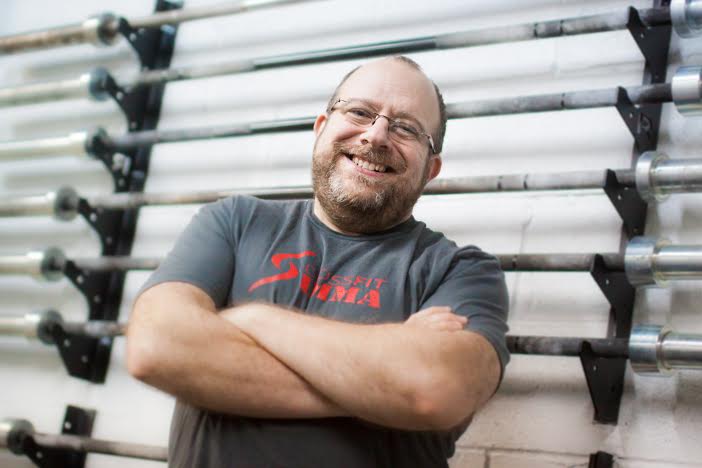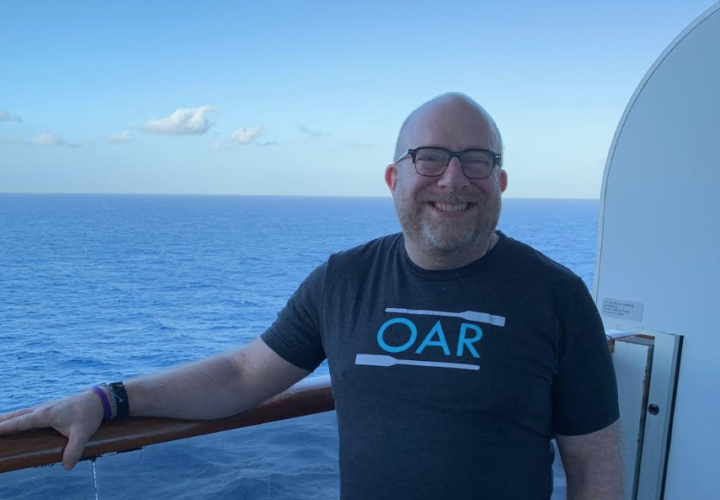Writer and Being Patient columnist Phil Gutis touches down at AAIC 2023 in Amsterdam. He's one of the few Alzheimer's conference attendees who is actually living with Alzheimer's.
AMSTERDAM — When we arrived at the Rijks Museum, the home of Netherland’s most cherished artwork and cultural heritage, the halls were pretty empty and it was easy to see the treasured artwork. By mid-day, however, the crowds had gotten intense and I suddenly felt the need to flee. Too many people. Not enough circulating air. And amidst the crowds, I couldn’t find my way back to the main hall.
Coincidentally, my husband had called me to check in, and he kept me calm as I eventually found the exit and made my way to the beautiful and air-filled entrance hall.
It had been our second crisis of the day. Earlier, we lost track of a friend who is living in later stages of Alzheimer’s. She went into the museum restroom, and we didn’t realize the room had two exits.
Eventually it became clear that she had gone out the other exit and was lost in the crowds. We went to museum security who calmly and professionally handled the crisis. (It was clearly not their first time handling this specific situation.) Within minutes of a security officer sending out my friend’s description, she appeared on the arm of another guard. Crisis averted but lessons learned: Use the handicapped bathrooms: one stall, one door, and no chance of someone wandering off!
I arrived in Amsterdam this past Thursday morning, July 13, for the Alzheimer’s Association’s International Conference 2023 and spent a few days acclimating to the time change and seeing a bit of the city.
Day one was a canal tour, where we learned a bit of the city’s history and got a canal-eye view of Amsterdam’s old town, where buildings date to the 1600s and are so old they lean right and right rather dramatically. The vast majority of buildings in the Olde City actually have hooks emerging from the top, originally to handle cargo and now to move furniture because stairways are so very narrow in these ultra-thin homes.
Amsterdam is a beautiful city: clean, orderly. Traffic zooms by quickly and quietly. Bicyclists rule the streets and yield for no one. English is spoken by almost everyone and getting around is easy.
There have been unique moments. Looking for lunch after the canal tour, we wandered into a “coffee house” and learned that we could not purchase food unless we also purchased a cannabis product. We saw no sign of coffee and walked out without food.
As for the AAIC conference, that opened officially yesterday — Sunday July 16 — with a registration line that looked ten times worse than anything I’ve seen at airport security. But apparently it moved quickly. (My registration packet was in the press room. No line, although three conference center security guides sent me on wild goose chases before I was able to find the room.)
The opening plenary featured a presentation on biomarkers with a focus on the Tau tangles in the brain that along with amyloid plaques are a marker of Alzheimer’s disease. What struck me most, once again, was how long it takes to move scientific discovery to a place where it becomes part of ordinary care and treatment for people living with a disease.
In coming days, attendees will be able to choose from 600 live presentations or wander a plethora of 2,900 posters. We’ll hear about the latest data on donanemab, the latest disease-modifying drug that is likely to win FDA approval. We’ll hear about blood biomarkers and how simple blood tests — not unlike the blood prick that people living with diabetes do many times a day — are showing promise in early detection of Alzheimer’s.
Researchers will also present findings about how gene editing may offer treatment for Alzheimer’s, how stomach issues, particularly constipation, may be a leading indicator of dementia.
The early buzz, though, is about how ill-prepared health systems and doctors are to handle the latest developments in Alzheimer’s science. Maria Carrillo, the Alzheimer’s Associations science director, welcomed the new era of disease-modifying treatments but added that the movement is in the very early stages of discovery.
“The causes of dementia are very complicated and need complex solutions,” Carrillo said. “These go beyond amyloid and beyond tau to include any other targets such as innate immunity, energy metabolism, vascular contributions and so many others.
At the same time science continues to make discoveries — 5,600 scientific abstracts were submitted to the conference organizers for consideration this year.
“We will need to address modes of administration,” Carrillo added, “in the hopes of reducing the burden and the cost so that treatments reach every corner of the globe, not just some.”
Tall order indeed. I can’t help wonder how many lives that could have been extended will be lost as science, the medical industry and government continue to grind forward.
Phil Gutis is a former New York Times reporter and current Being Patient contributor who was diagnosed with early onset Alzheimer’s. This article is part of his Phil’s Journal series, chronicling his experience living with Alzheimer’s and his participation in the aducanumab clinical trial.




You are rocking it Phil in Amsterdam and I’m blessed to see it through your experience not being able to be there! Keep on going!
💪 💪